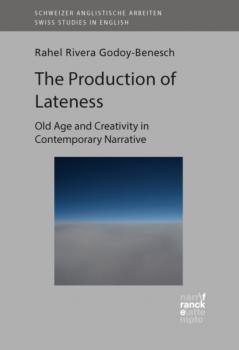ТОП просматриваемых книг сайта:
Rahel Rivera Godoy-Benesch
Список книг автора Rahel Rivera Godoy-BeneschАннотация
This study examines how selected authors of the late 20th and early 21st centuries write about their creative processes in old age and thus purposefully produce a late style of their own. Late-life creativity has not always been viewed favourably. Prevalent «peak-and-decline» models suggest that artists, as they grow old, cease to produce highquality work. Aiming to counter such ageist discourses, the present study proposes a new ethics of reading literary texts by elderly authors. For this purpose, it develops a methodology that consolidates textual analysis with cultural gerontology.

